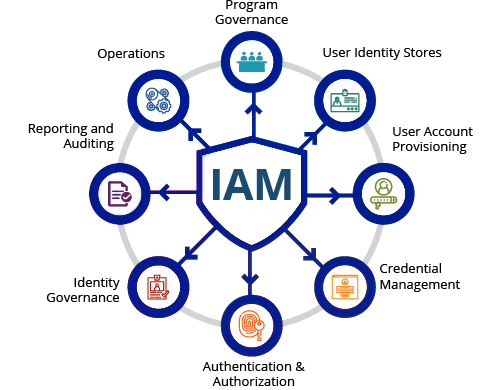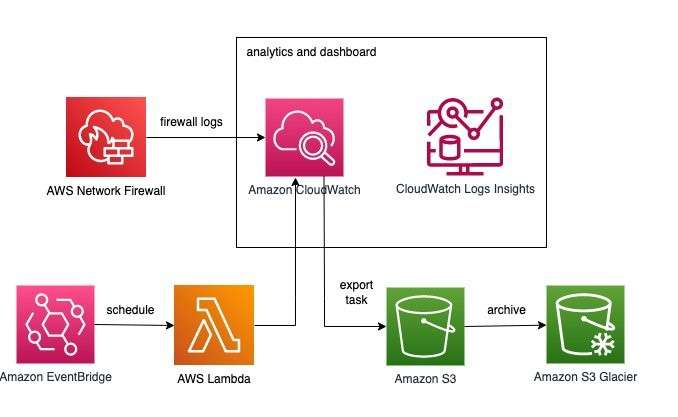
- Introduction to AWS Security Certifications
- AWS Certified Security—Specialty Overview
- Key Topics Covered in the Exam
- AWS Security Best Practices
- Identity and Access Management (IAM)
- AWS Security Monitoring and Logging
- Encryption and Data Protection on AWS
- Networking and Firewall Security in AWS
- Study Materials and Practice Tests
- Career Opportunities After Certification
- Common Mistakes to Avoid in the Exam
- Exam-Day Tips and Tricks
- Conclusion
Introduction to AWS Security Certifications
In today’s world, security is paramount, especially in the cloud. AWS offers a range of certifications to help IT professionals demonstrate their ability to secure AWS environments and understand key aspects of cloud security. Among these, the AWS Certified Security Specialist certification stands out as one of the most highly regarded credentials for individuals seeking to validate their expertise in securing cloud infrastructures on AWS. This certification is designed for professionals who deeply understand security services and best practices in AWS. It validates one’s ability to secure data, systems, and applications on the AWS platform. Given the increasing importance of cloud security, acquiring this certification can open doors to higher-paying jobs and more complex cloud security projects.
AWS Certified Security – Specialty Overview
The AWS Certified Security Specialty certification is aimed at individuals with experience in security roles within the AWS cloud environment. This certification focuses on specific security practices, including identity and access management, monitoring, incident response, data protection, and more. This certification is ideal for professionals with experience in AWS security, particularly in areas such as data security, monitoring cloud infrastructure, and managing security risks. The exam tests your knowledge and skills in securing AWS environments and services.
Key Details about the Exam:- Prerequisites: While there are no official prerequisites for this certification, AWS recommends that candidates have at least two years of hands-on experience securing AWS workloads and environments.
- Exam Duration: 170 minutes
- Cost: USD 300
- Validity: 3 years (after which you will need to recertify)
- Exam Format: 65 multiple-choice questions
Key Topics Covered in the Exam
The AWS Certified Security – Specialty exam covers a broad range of security topics related to AWS. Here are the key domains that you should be familiar with when preparing for the exam:
- Incident Response (15%): This section focuses on the ability to detect and respond to security events. It covers topics like automating response, analyzing logs, identifying security threats, and coordinating with other AWS services for incident management.
- Identity and Access Management (IAM) (20%): IAM is a fundamental part of cloud security, and the exam will test your understanding of managing identities, access permissions, and enforcing least privilege. You must also know about multi-factor authentication (MFA), roles, and policies.
- Detective Controls (15%): Security monitoring, auditing, and logging. You must be proficient in using AWS services like AWS CloudTrail, Amazon CloudWatch, and AWS Config to detect, log, and monitor suspicious activity.
- Protective Controls (25%): This section covers encryption, data protection, firewalls, and security best practices. The focus is on preventing unauthorized access and ensuring the security of your data both at rest and in transit.
- Data Protection (10%): Topics include securing sensitive data, encryption key management, and understanding compliance requirements for different regions and industries.
- Infrastructure Security (15%): Securing AWS services like VPC, subnets, security groups, and network ACLs. You must understand how to secure network traffic, set up firewalls, and implement security measures for EC2 instances, load balancers, and other AWS infrastructure services.
Identity and Access Management (IAM)
AWS Identity and Access Management (IAM) is a fundamental component of AWS security, managing access to resources within an AWS account. It allows users to define roles and policies using JSON-based permissions, ensuring that only authorized individuals or services can access specific resources like S3 buckets or EC2 instances. IAM also enhances security through Multi-Factor Authentication (MFA), adding an extra layer of protection, particularly for administrative users. For programmatic access, IAM provides access keys, though best practices recommend using AWS Secrets Manager instead of embedding keys in code to enhance security and prevent unauthorized access.

AWS Security Best Practices
You must understand and apply various best practices to pass the AWS Certified Security – Specialty exam and succeed in securing AWS environments. Some of these key practices include:
- Use IAM for Access Control: Always ensure access to resources is granted based on the least privilege principle, using IAM roles and policies effectively. Use AWS Identity Federation for single sign-on and enable MFA for sensitive operations.
- Encrypt Sensitive Data: Use AWS Key Management Service (KMS) to encrypt sensitive data at rest and Amazon S3 for encryption in transit. This ensures your data remains secure both on AWS and during transfer.
- Monitor and Audit Security: Use AWS CloudTrail, CloudWatch, and AWS Config to log and monitor activity in your AWS account. Regular auditing ensures that you detect and respond to suspicious activities early.
- Implement Network Segmentation: Create VPCs, subnets, and security groups to isolate your cloud infrastructure and limit access. Use AWS Network Firewall and AWS WAF (Web Application Firewall) to protect against network-based threats.
- Manage Vulnerabilities: Regularly scan for vulnerabilities using Amazon Inspector and integrate with AWS Security Hub for a centralized view of your security posture.
AWS Security Monitoring and Logging
A critical part of AWS security is monitoring your resources and tracking activity. Key services for monitoring and logging include:
- AWS CloudTrail: Provides a log of all API calls made within your AWS account, offering insight into user activity.
- Amazon CloudWatch: Allows you to monitor AWS services in real-time and create custom metrics and dashboards for system health.
- AWS Config: Tracks changes to your AWS resources and ensures compliance with security policies.
Encryption and Data Protection on AWS
Data protection is a crucial aspect of security, and AWS offers multiple mechanisms to safeguard sensitive information. Encryption at rest ensures data is securely stored using AWS Key Management Service (KMS), which encrypts data across services like Amazon S3, EBS, and RDS. For data in transit, AWS enforces encryption through SSL/TLS protocols, protecting data as it moves between services such as Amazon RDS, API Gateway, and Elastic Load Balancers. These encryption methods help maintain data confidentiality and integrity, ensuring secure communication and storage across AWS environments.
Networking and Firewall Security in AWS
AWS provides several services to help secure your network and firewall configurations:
- Amazon VPC (Virtual Private Cloud): Use VPC to create isolated networks in AWS. Implement network segmentation through subnets and route tables.
- Security Groups and Network ACLs: Security groups act as virtual firewalls for your EC2 instances. Network ACLs provide an additional layer of security by controlling inbound and outbound traffic to subnets.

Study Materials and Practice Tests
A well-structured study plan is essential for preparing for the AWS Certified Security Specialty exam. AWS whitepapers provide valuable insights into security best practices and the AWS security model, forming a strong foundation. Official AWS training courses and learning paths offer in-depth coverage of key exam topics, ensuring a comprehensive understanding. Practice tests from platforms like Whizlabs and A Cloud Guru help candidates become familiar with the exam format and timing. Additionally, reviewing AWS documentation on essential security services such as IAM, CloudTrail, KMS, and VPC is crucial for mastering AWS security concepts and their practical applications.
Career Opportunities After Certification
After obtaining the AWS Certified Security Specialty certification, career opportunities include:
- Cloud Security Architect: Design and implement secure cloud infrastructure and applications.
- Security Operations Engineer: Monitor and respond to security incidents and vulnerabilities within the cloud environment.
- Cloud Security Consultant: Provide expertise and guidance on cloud security solutions for businesses migrating to AWS.
- Compliance Officer: Ensure the AWS infrastructure meets industry-specific security and compliance regulations.
Common Mistakes to Avoid in the Exam
One common mistake when preparing for the AWS Certified Security Specialty exam is not carefully reading the questions, as slight wording differences can impact the correct answer, especially for security controls and services. Another pitfall is neglecting minor topics like monitoring and incident response, which can still appear on the exam. To ensure thorough preparation, candidates should study all subject areas, even those that seem less significant. Additionally, insufficient practice can make the exam more challenging, as it often includes complex scenarios that require a strong grasp of AWS security concepts. Taking practice tests is crucial for understanding the question format and improving accuracy. Lastly, overlooking the AWS Free Tier is a missed opportunity—gaining hands-on experience with security configurations and settings in a real AWS environment reinforces theoretical knowledge and enhances practical skills.
Exam-Day Tips and Tricks
- Time Management: Allocate about 2.5 minutes per question, and don’t spend too much time on any one question.
- Stay Calm and Focused: If you encounter a tricky question, skip it and return later if time permits.
- Double-Check Your Answers: Before submitting, go back and review your answers to ensure you didn’t make any careless mistakes.
Conclusion
The AWS Certified Security Specialist exam is a rigorous but rewarding certification for those looking to validate their expertise in cloud security on AWS. With the growing importance of cloud security, this certification can significantly enhance your career prospects, providing access to high-paying job roles in cloud security. By preparing thoroughly, practicing with real-world tools, and understanding AWS security best practices, you’ll be well on your way to passing the exam and advancing your career in cloud security.





